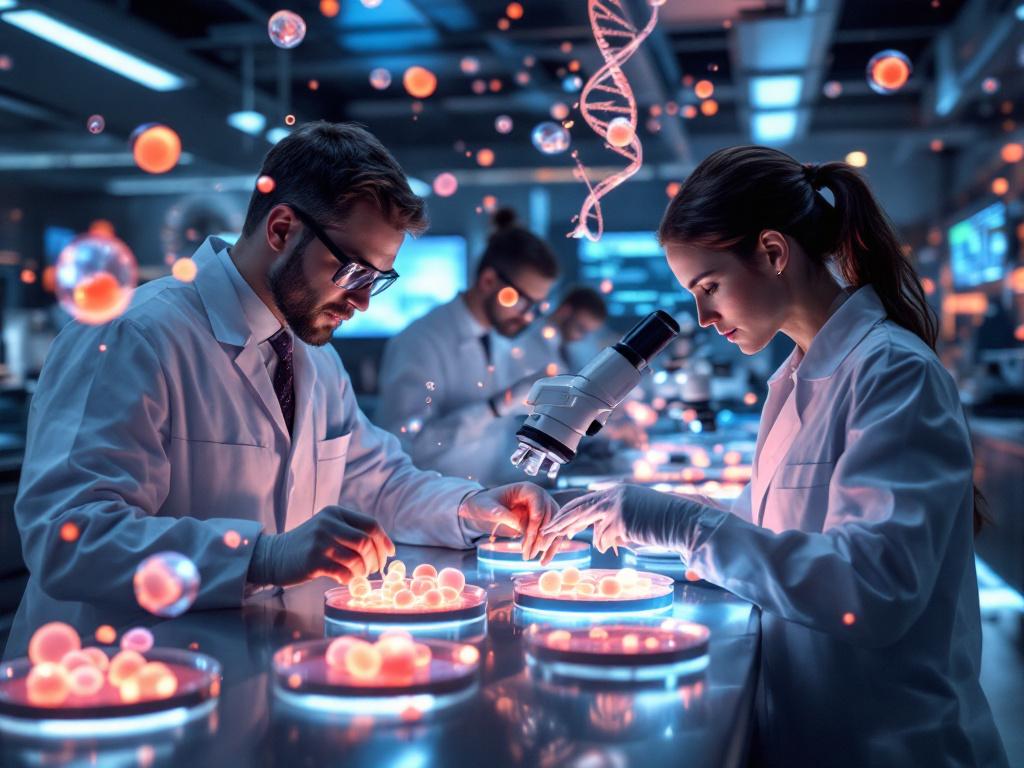🌌 When Life Begins… in the Lab
For the first time in history, scientists have succeeded in turning human skin cells into eggs.
The achievement, led by researchers at Oregon Health & Science University (OHSU), marks a turning point in reproductive biology — a moment when technology crossed one of the deepest frontiers of nature.
These artificially created fertilizable human eggs could one day help people facing infertility, reshape family structures, and challenge the very meaning of human origin.
But along with hope comes unease: when science learns to recreate life, what happens to our understanding of how it begins?
🧪 The Magic (and Science) Behind the Discovery
Led by pioneer Shoukhrat Mitalipov, the OHSU team used a process that feels both surgical and poetic: the nucleus of a skin cell was inserted into a human egg whose original DNA had been removed.
Then, through a delicate stimulation process, scientists triggered the egg to “reset” itself — reducing its chromosomes and regaining the ability to be fertilized.
The result? Dozens of lab-generated eggs, some of which developed into early embryos.
They are not yet perfect — most showed chromosomal errors, and none were implanted — but the message is clear: life can now be rewritten from any cell.
👩⚕️ From Infertility Hope to the Dream (or Nightmare) of Shared DNA
The medical potential is staggering.
For people who have lost fertility due to illness or age, this could open an entirely new path to parenthood.
Even more controversial is the idea that same-sex couples could one day have a biologically related child. Imagine: one partner donates skin cells that are turned into eggs, the other provides sperm — the embryo shares both their DNA.
It’s an idea both exhilarating and unsettling — a glimpse into a future where biology bends to will.
⚠️ The Ethical Questions We Can’t Ignore
With every leap forward comes a shadow. Who owns the genetic material if an egg can be made from anyone’s skin cell? Where does medical innovation end and biological manipulation begin?
And then there’s the specter of the designer baby — when technology makes it possible not just to create life, but to customize it.
Eye color, intelligence, disease resistance: what starts as medicine could slip into selection.
Are we ready for a world where parenthood is programmable?
🔍 What Comes Next: Between Promise and Peril
There’s still a long road ahead.
The in vitro gametogenesis process isn’t yet safe or reliable; most eggs fail to divide properly, and no pregnancies have been attempted.
Yet, the direction is set. Scientists are refining the process, and one day, it could move from the lab to the clinic.
Meanwhile, ethical and legal frameworks lag behind. Society is only beginning to grapple with what this means — when birth itself might be engineered.
🧭 When Biology Meets Philosophy
Perhaps the real question isn’t can we do it? but should we?
Creating eggs from skin cells challenges our understanding of origin, family, and identity.
There’s beauty in this research — hope for those who thought they could never have children — but also a fragile line between creation and control.
Science has given us the power to remake life. What it can’t give us is the wisdom to decide how far to go.
🌱 Conclusion: The Frontier We Can’t Cross Blindly
Science has shown that skin can become life.
But only we can decide if that life should begin.
Every cell holds an entire universe — and now we’ve found the switch that can turn it on. Yet, with that discovery comes an enormous responsibility.
So the question remains:
How far are we willing to go to rewrite ourselves?






